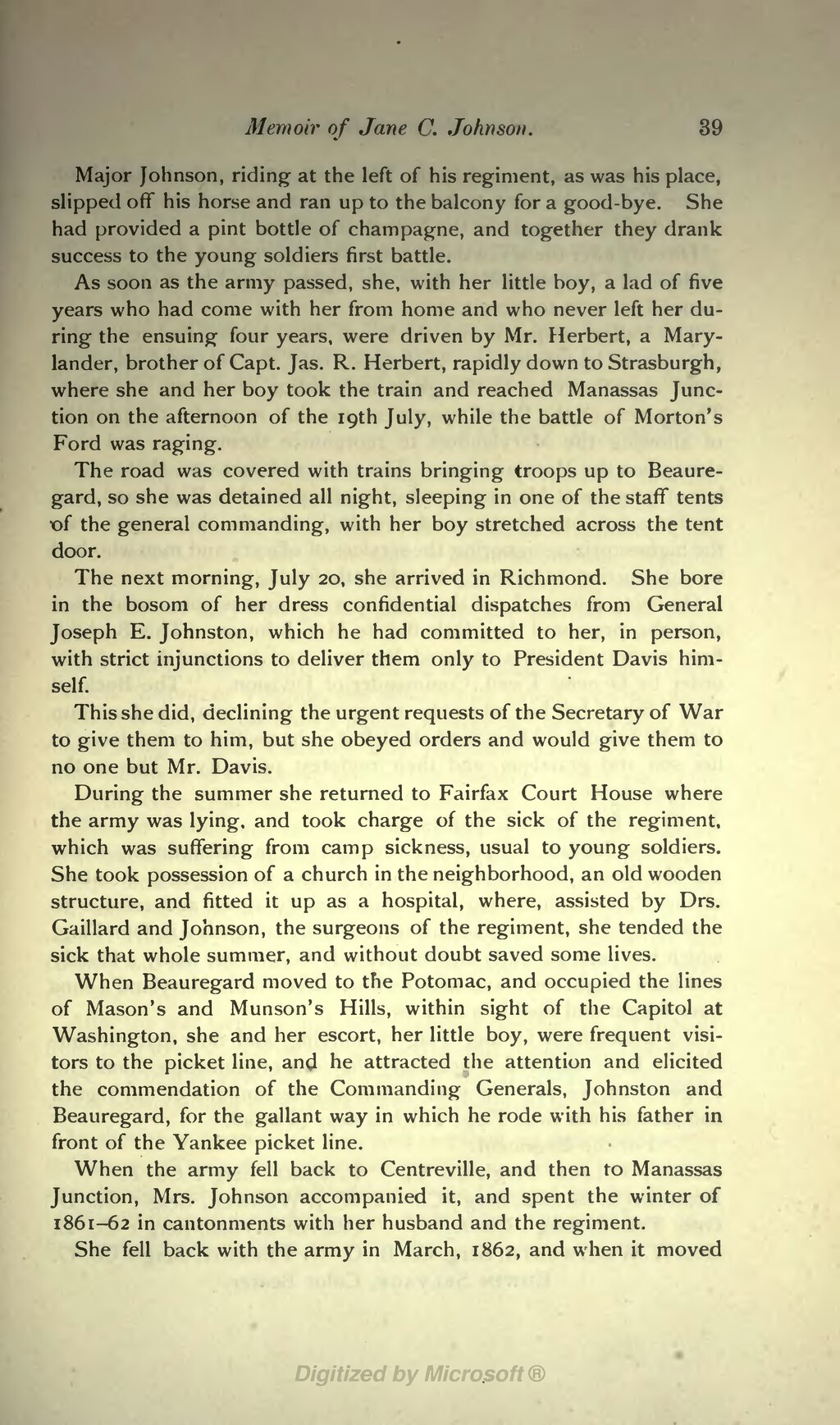Memoir of Jane C. Johnson. 39
Major Johnson, riding at the left of his regiment, as was his place, slipped off his horse and ran up to the balcony for a good-bye. She had provided a pint bottle of champagne, and together they drank success to the young soldiers first battle.
As soon as the army passed, she, with her little boy, a lad of five years who had come with her from home and who never left her du- ring the ensuing four years, were driven by Mr. Herbert, a Mary- lander, brother of Capt. Jas. R. Herbert, rapidly down to Strasburgh, where she and her boy took the train and reached Manassas Junc- tion on the afternoon of the igth July, while the battle of Morton's Ford was raging.
The road was covered with trains bringing troops up to Beaure- gard, so she was detained all night, sleeping in one of the staff tents of the general commanding, with her boy stretched across the tent door.
The next morning, July 20, she arrived in Richmond. She bore in the bosom of her dress confidential dispatches from General Joseph E. Johnston, which he had committed to her, in person, with strict injunctions to deliver them only to President Davis him- self.
This she did, declining the urgent requests of the Secretary of War to give them to him, but she obeyed orders and would give them to no one but Mr. Davis.
During the summer she returned to Fairfax Court House where the army was lying, and took charge of the sick of the regiment, which was suffering from camp sickness, usual to young soldiers. She took possession of a church in the neighborhood, an old wooden structure, and fitted it up as a hospital, where, assisted by Drs. Gaillard and Johnson, the surgeons of the regiment, she tended the sick that whole summer, and without doubt saved some lives.
When Beauregard moved to the Potomac, and occupied the lines of Mason's and Munson's Hills, within sight of the Capitol at Washington, she and her escort, her little boy, were frequent visi- tors to the picket line, and he attracted the attention and elicited the commendation of the Commanding Generals, Johnston and Beauregard, for the gallant way in which he rode with his father in front of the Yankee picket line.
When the army fell back to Centreville, and then to Manassas Junction, Mrs. Johnson accompanied it, and spent the winter of 1861-62 in cantonments with her husband and the regiment.
She fell back with the army in March, 1862, and when it moved
